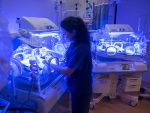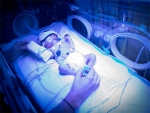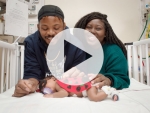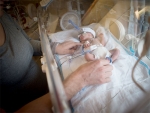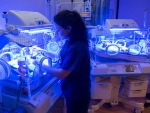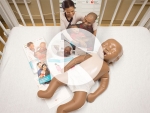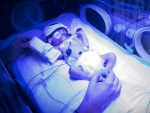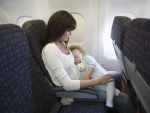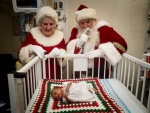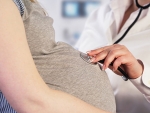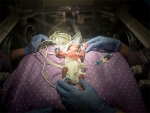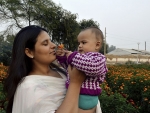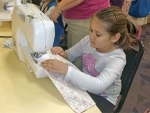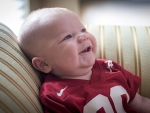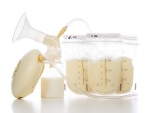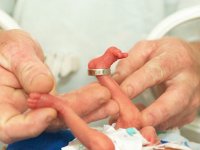Displaying items by tag: division of neonatology
A UAB professor will conduct new research that could provide answers to questions about the causes of preterm birth.
Tagged under
Women with substance use disorders now have a comprehensive care program at UAB to help navigate prenatal and postpartum care.
Tagged under
Wellness and healing for RNICU moms comes in many forms, including sewing Halloween costumes for their infants through UAB’s Institute for Arts in Medicine program.
Tagged under
The Golden Week program developed by UAB’s Regional Neonatal Intensive Care Unit was recently recognized nationally for its standardized set of practices for premature infants, providing them with quality care in their first week of life.
Tagged under
A biomarker, endothelial mitochondrial function, may be useful for early identification of newborn babies at risk for lung disease and could enable novel therapy approaches.
Tagged under
 UAB is raising funds to hand out complimentary lifesaving infant CPR kits to caregivers of high risk infants.
UAB is raising funds to hand out complimentary lifesaving infant CPR kits to caregivers of high risk infants.
Tagged under
Antenatal corticosteroids given to high-risk moms are associated with better outcomes for babies born prematurely.
Tagged under
Tagged under
Contrary to advertisements, bumper pads and stuffed animals are not part of a safe sleep environment for infants.
Tagged under
Tagged under
UAB researchers hope to establish Cialis as a therapeutic agent for pregnant women exposed to chlorine and bromine during industrial accidents or acts of terrorism.
Tagged under
UAB researchers have discovered that an infant’s airway — once thought to be sterile until after birth — is colonized by bacteria or bacterial DNA, which could be protective for or predict development of severe lung disease, knowledge that may offer a therapeutic target.
Tagged under
UAB continues to improve maternal and infant health as the only university to be a member of all three NIH perinatal networks.
Tagged under
Developmentally appropriate activities conducted by parents with their child during the first three years after birth reduce childhood cognitive delays in low-resource families.
Tagged under
Tagged under
Narrowing of aortic arch, infant’s otherwise good health prompt physicians to move Baby JJ’s Glenn procedure up one month.
Tagged under
Between-hospital variations in active treatment explain much of the difference seen in infants born at 22 to 24 weeks of gestation.
Tagged under
This public health initiative aims to ensure area babies have an opportunity to receive vital ‘first-food nutrients’ essential to early development.
Tagged under
Prematurity, low birth weight leading cause for the leveling off of infant mortality and neonatal mortality rates in the United States
Advances led by UAB and Children’s of Alabama neonatologist Wally Carlo have helped millions of infants worldwide
Tagged under
